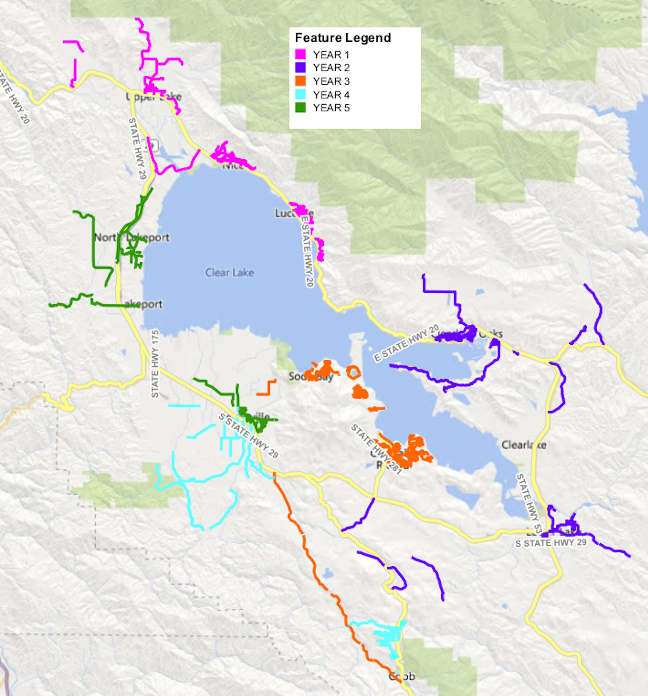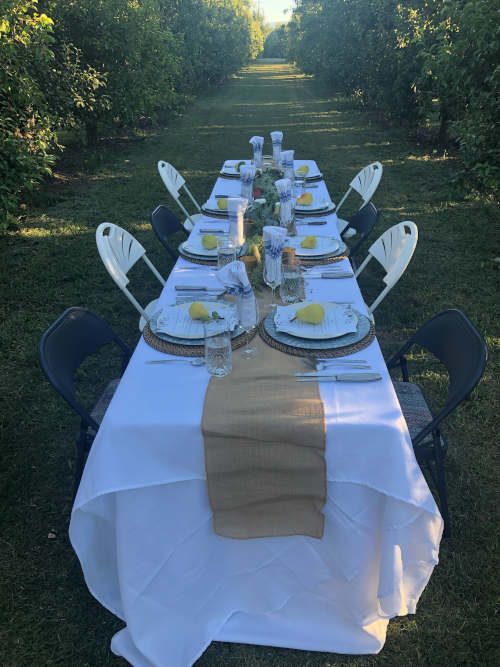LAKE COUNTY, Calif. — County officials say they have begun issuing well drilling permits once again after a gubernatorial executive order issued in March in response to worsening drought conditions led to a local pause in permitting.
On March 28, Gov. Gavin Newsom issued
Executive Order N-7-22, a response to what his office reported were the driest first three months of a year in California’s recorded history.
Specifically, Newsom’s order called on local water suppliers to move to level two of their water shortage contingency plans, which require “locally-appropriate actions that will conserve water across all sectors.”
Newsom also directed the State Water Resources Control Board to consider a ban on the watering of decorative grass at businesses and institutions. The proposed ban would not include residential lawns or grass used for recreation, such as school fields, sports fields and parks.
The California Department of Water Resources estimated that the proposed ban alone will result in potential water savings of several hundred thousand acre-feet. An acre-foot of water serves the needs of approximately three households for a year.
Since Newsom issued that executive order at the end of March, Lake County residents seeking to drill new wells found they couldn’t do so.
One of them was Dr. Susan Cannon, who owns Wasson Memorial Veterinary Clinic in Lakeport. Cannon found out about it in early April when the well at her clinic failed due to a cracked casing, not a lack of water.
When her well driller, Matt Hutton, went to Lake County Environmental Health to apply for a permit for a new well, he was told the county wasn’t issuing new permits and was studying the situation, Cannon said.
Cannon said she couldn’t believe the county wasn’t going to allow a well that had been in use for more than 50 years to be replaced. During that time, she said she was having to have water trucked into her clinic.
Hutton, whose father founded Upper Lake-based Hutton Well Drilling in 1950, said it was when he went to the county offices during the first week of April to get permits for well drilling projects that county staff told him that it would be some time before they would be able to resume issuing permits due to the need to study the executive order.
Since then, Hutton said he’s spoken to a casing supplier who said some other counties have stopped issuing well drilling permits altogether due to the executive order.
“I’m very disappointed in Gov. Newsom’s executive order,” Hutton said, adding he wished the governor had left it up to the counties. “He chose a one-size-fits-all mandate. Each county is different. We all have different issues. We can handle this drought differently, some better, some worse.”
Normally, it’s not a problem to drill a replacement well. However, in this case, the executive order resulted in about a half dozen permits Hutton was seeking — including the one for Cannon’s replacement well — being put on hold while the county paused the process.
Studying the orderDwight Coddington, spokesman for Lake County Health Services, said the agency’s Environmental Health Division took time to study the gubernatorial executive order addressing drought conditions assistance from county counsel.
Coddington pointed to Section 9 of Newsom’s executive order, which triggered the county’s pause in issuing permits.
That section states:
To protect health, safety, and the environment during this drought emergency, a county, city, or other public agency shall not:
a. Approve a permit for a new groundwater well or for alteration of an existing well in a basin subject to the Sustainable Groundwater Management Act and classified as medium- or high-priority without first obtaining written verification from a Groundwater Sustainability Agency managing the basin or area of the basin where the well is proposed to be located that groundwater extraction by the proposed well would not be inconsistent with any sustainable groundwater management program established in any applicable Groundwater Sustainability Plan adopted by that Groundwater Sustainability Agency and would not decrease the likelihood of achieving a sustainability goal for the basin covered by such a plan; or
b. Issue a permit for a new groundwater well or for alteration of an existing well without first determining that extraction of groundwater from the proposed well is:
(1) not likely to interfere with the production and functioning of existing nearby wells, &
(2) not likely to cause subsidence that would adversely impact or damage nearby infrastructure.
In order to ensure thorough adherence to this order, Coddington said Environmental Health had suspended the issuing of any new permits for wells or for repairs, pending review by counsel.
Then last Tuesday, April 26, during the public comment period at the start of the Board of Supervisors’ meeting, Environmental Director Health Craig Wetherbee gave the board a brief update on the situation.
He explained that Section 9A of the executive order — the same one that Coddington pointed out to Lake County News — had a direct impact on the county related to the issuing of well permits.
Wetherbee said the executive order “has essentially stopped us from issuing well permits for the past three weeks.”
He said Environmental Health had been working closely with county counsel to find solutions. As a result, “We now have in place our solutions to this.”
Regarding Section 9a of the executive order and its direction on managed water basins, Wetherbee said the Big Valley watershed is the only one currently managed in Lake County.
For the Big Valley area, getting a well permit now required signatures from the watershed’s management team, he said.
As for Section 9b, the requirement for ag wells, Wetherbee said those who want well drilling permits must get a hydrologist or another professional to attest to their well not impacting performance of the nearby well and that their well is not likely to cause a subsidence.
“In Lake County, the likelihood of causing a subsidence is very minimal,” Wetherbee said.
However, concerns about interfering with production of another well has been ongoing for some time, he said.
“We will be moving forward with the issuing of permits under the following conditions,” Wetherbee said.
Domestic use wells, for residences and businesses, will be granted exemptions per the executive order, Wetherbee said, provided that they do not take more than two acre feet a year.
He said Environmental Health will be moving forward with permitting those wells with a certification from the property owner that they understand the limitation and will agree to abide by it.
Wetherbee said agriculture wells will be required to continue to provide the report that makes the statement that they will not likely affect any other wells in the nearby area or cause a subsidence.
As of April 26, Wetherbee said they were issuing well permits, which he was very happy to be able to do.
“We have a lot of folks whose wells are starting to run dry and they’re looking to get work done,” he said.
Cannon told Lake County News late last week that her permit application was accepted based on the fact that the water is being used for "domestic use” and that it’s in the process of being approved.
She credited the county with finding a workaround to the situation.
Coddington said late last week that it was his understanding that no permits have been denied as a result of Environmental Health “coming into thorough compliance with the governor’s recent executive order.”
He added, “All pending requests have or are being moved forward at this time, and we are very appreciative of the community’s patience throughout this process.”
Hutton said he received a call on Monday notifying him that his permits for domestic and public wells would be accepted by Environmental Health. For agriculture, it will be more difficult, as it will require additional reporting.
Some of the fallout from the executive order is continuing. With word of it spreading throughout the community, Hutton said it’s causing some panic and he’s getting calls even from those in stable water situations.
For more information on groundwater well permits, visit
http://www.lakecountyca.gov/Government/Directory/Environmental_Health.htm .
Email Elizabeth Larson at This email address is being protected from spambots. You need JavaScript enabled to view it.. Follow her on Twitter, @ERLarson, or Lake County News, @LakeCoNews.
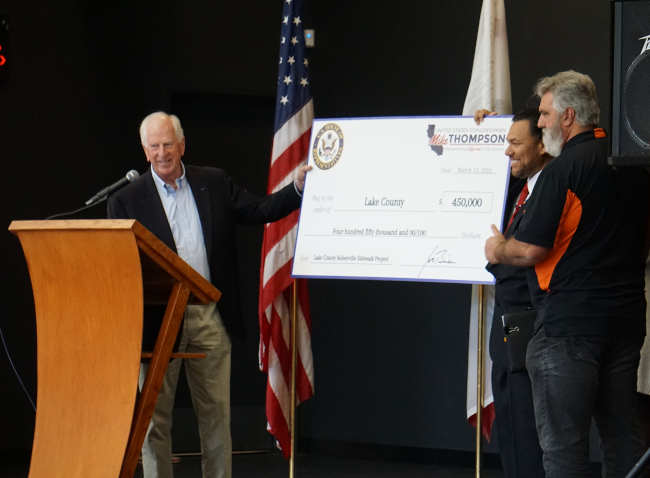
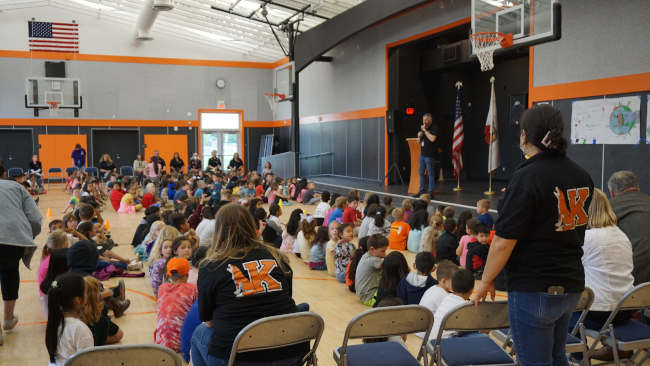
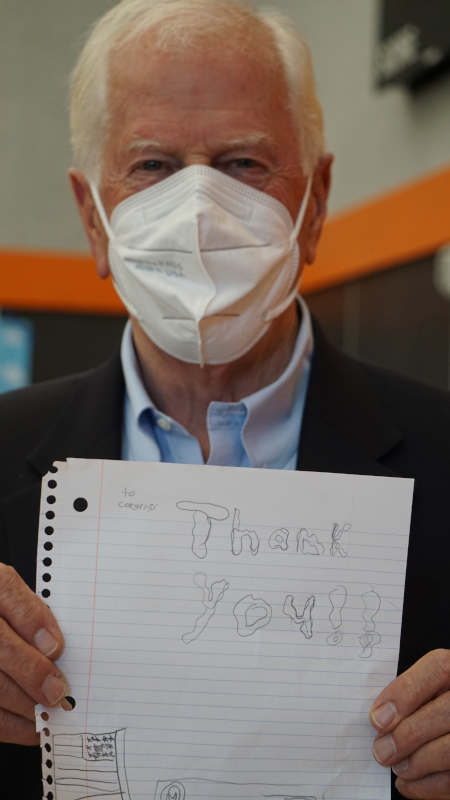

 How to resolve AdBlock issue?
How to resolve AdBlock issue? 












